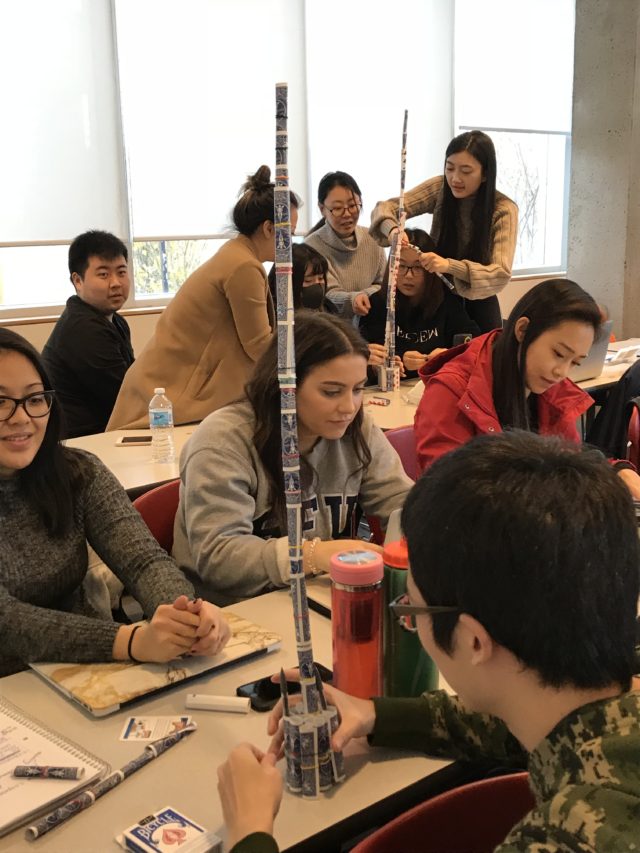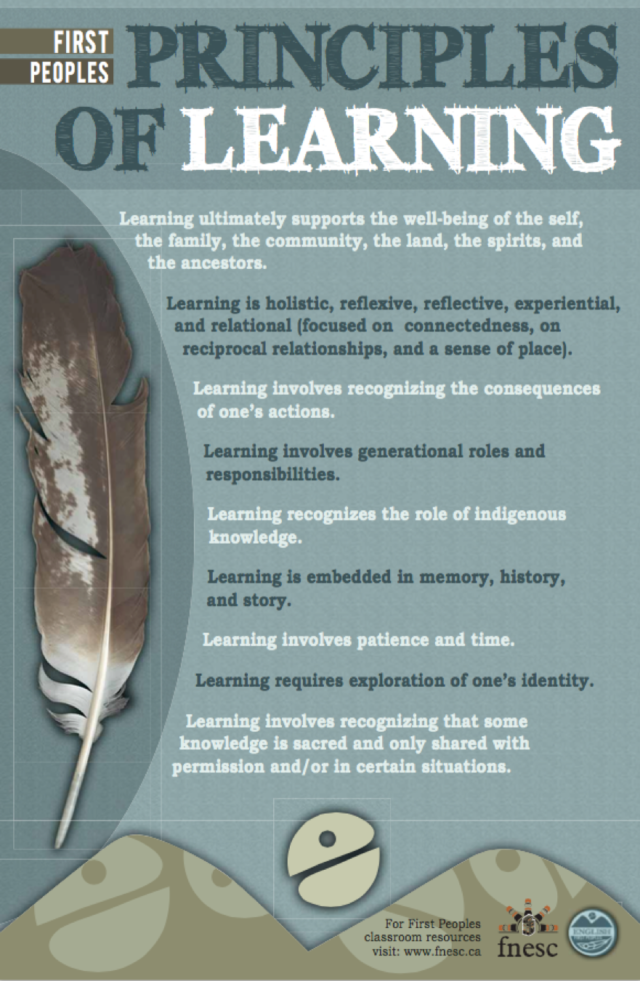Coming To An End
WEEK 10 – EDUC471D100 – November 10, 2017

Unfortunately, today was a catch up day. We fell behind last class and postponed a couple of the student-led activities from last week to this week. It was a jammed packed day. We started off the day with a staring contest with prizes to be won. Then we embarked on another collaborative activity that emphasized creativity. Each group was given a deck of cards, elastics, and an objective… build the tallest structure. These collaborative-competitive activities are super engaging and emphasize the three core competencies of BC’s New Curriculum even though the objective of this activity (as seen in the picture) was looking for creativity. I loved how members of each team started looking at what others were doing. Another example of we are better working together than apart. It also reminds me of the First Peoples Principles of Learning (FPPL)… see below. This activity demonstrates that (1) learning involves the consequences of one’s actions; (2) learning involves patience and time; and, (3) learning is holistic, reflexive, reflective, experiential, and relational. We did another student-led activity where students were required to memorize a list of unrelated words. We learn that the best way to remember these words was to embed these words into story or (4) learning is embedded in memory, history, and story. We spend time in this course reflecting and sense-making in group discussions and in journals where (5) learning requires exploration of one’s identity. We try to embed the FPPL into EDUC471D100 but I would love to connect to land and place more often in the learning experience, recognize the role of Indigenous knowledge, and learning involves generational roles and responsibilities. I am still learning and I appreciate that I have the opportunity to learn-by-doing in my class and with my class to see what’s possible. There is much work to be done but we are moving forward and making progress.
Journal Reflection Questions – Answered Above
What parts of the First Peoples Principles of Learning have your experienced in K-12, higher education, at home or in the workplace? Describe the experience.
What parts of the First Peoples Principles of Learning would you like to see in the K-12 learning experience? Why do you think this would be important?
MY REFLECTION
The course is coming to an end but with we are only at the beginning of indigenizing curriculum and embedding Indigenous Education into our learning experience. I am currently working on a Massive Open Online Course (MOOC) at UBC on Reconciliation Through Indigenous Education. I delved into it recently and I am humbled by the content, delivery, and amount of learning resources available. What I have learned is my pedagogy and education philosophy are aligned to what is being taught in this course. We need to try new ideas and collaborate with the Indigenous community and elders as our teachers. My biggest aha is, Land is Part of My Identity. This put together ideas of recognizing the territory and where one comes from because the land defines who that person is. I realize the importance of land. During EDUC454, I appreciated the land. After UBC MOOC, I respect the land. I wished that I had participated in this MOOC earlier, but I am grateful what I have learned so far and look forward to embedding, exploring, and experimenting with many of these ideas into my practice. As a result, I am modifying EDUC471D100 IGNITE presentation to be a STORY that has meaning and reflects their learning.
